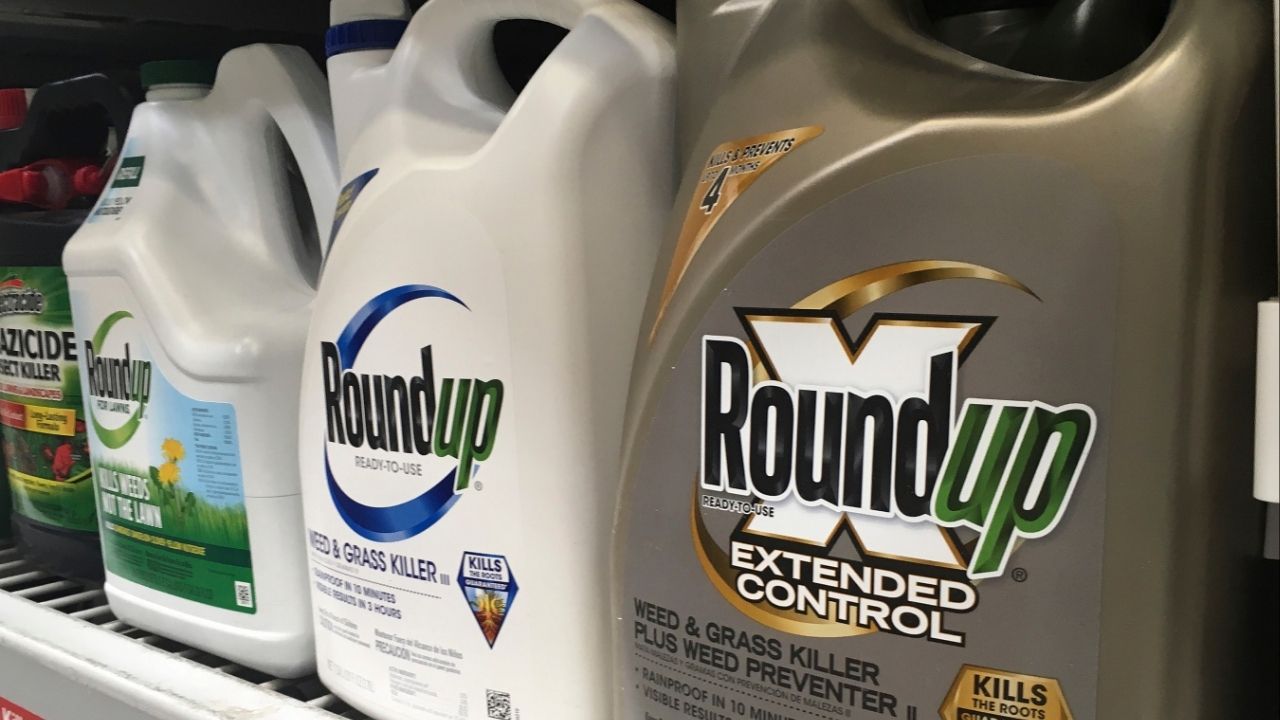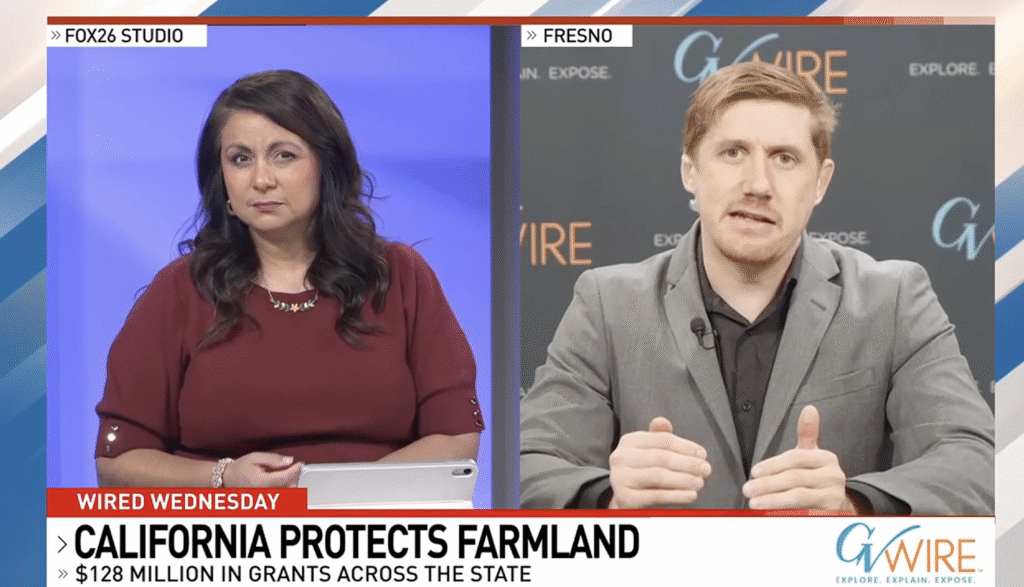In this Feb. 24, 2019, file photo, containers of Roundup are displayed on a store shelf in San Francisco. (AP File)

- A Georgia jury ordered Bayer to pay nearly $2.1 billion in damages to a man who claims Roundup caused his cancer.
- Plaintiff John Barnes, diagnosed with non-Hodgkin’s lymphoma, accused Monsanto of covering up Roundup’s risks and failing to warn consumers.
- Bayer, facing over 177,000 lawsuits, maintains Roundup’s safety and plans to appeal the verdict, arguing scientific evidence supports its product.
Share
|
Getting your Trinity Audio player ready...
|
NEW YORK — A jury in Georgia has ordered Monsanto parent Bayer to pay nearly $2.1 billion in damages to a man who says the company’s Roundup weed killer caused his cancer, according to attorneys representing the plaintiff.
The verdict marks the latest in a long-running series of court battles Monsanto has faced over its Roundup herbicide. The agrochemical giant says it will appeal the verdict, reached in a Georgia courtroom late Friday, in efforts to overturn the decision.
The penalties awarded include $65 million in compensatory damages and $2 billion in punitive damages, law firms Arnold & Itkin LLP and Kline & Specter PC said in a statement. That marks one of the largest verdicts in a Roundup-related case to date.
Plaintiff Files Lawsuit Seeking Damages Related to Son’s Diagnosis
Plaintiff John Barnes filed his lawsuit against Monsanto in 2021, seeking damages related to his non-Hodgkin’s lymphoma. Arnold & Itkin attorney Kyle Findley, the lead trial lawyer on the case, said the verdict will help put his client in a better position to get the treatment he needs going forward.
“It’s been a long road for him … and he was happy that the truth related to the product (has) been exposed,” Findley told The Associated Press on Sunday. He called the verdict an “important milestone” after “another example of Monsanto’s refusal to accept responsibility for poisoning people with this toxic product.”
Germany-based Bayer, which acquired Monsanto in 2018, has continued to dispute claims that Roundup causes cancer. But the company has been hit with more than 177,000 lawsuits involving the weedkiller and set aside $16 billion to settle cases.
In a statement, Monsanto said Friday’s verdict “conflicts with the overwhelming weight of scientific evidence and the consensus of regulatory bodies and their scientific assessments worldwide.” The company added that it continues “to stand fully behind the safety” of Roundup products.
Roundup Designed to Work With GMO Seeds
For a variety of crops — including corn, soybeans and cotton — Roundup is designed to work with genetically modified seeds that resist the weedkiller’s deadly effect. It allows farmers to produce more while conserving the soil by tilling it less.
Some studies associate Roundup’s key ingredient, glyphosate, with cancer, although the U.S. Environmental Protection Agency has said it is not likely to be carcinogenic to humans when used as directed. Still, numerous lawsuits over the weedkiller allege glyphosate does cause non-Hodgkin lymphoma, arguing that Monsanto has failed to warn the public about serious risks for years.
Findley said that evidence relating to Barnes’ case show “many years of cover-ups” and “backroom dealings.” He accused Monsanto of ignoring several scientific studies related to the toxicity of Roundup and said the company “tried to find ways to persuade and distract and deny the connection between this product and non-Hodgkin’s lymphoma.”
Friday’s decision marks the fourth Roundup-related verdict that Findley’s team has won to date — the largest of which was awarded in Philadelphia in January 2024, with damages totaling $2.25 billion. And he said his law firm has “many more clients who are similarly situated as Mr. Barnes.”
Monsanto, meanwhile, also maintains that it “remains committed to trying cases” — and argues its wider record of Roundup-related litigation continues to reinforce the safety of its products. The company said it has prevailed in 17 of the last 25 related trials and “jury verdicts were reduced 90% overall” in past cases that have been finalized.
Bayer has recently renewed and expanded an effort across a handful of U.S. states to protect pesticide companies from claims they failed to warn that a product causes cancer, if labeling otherwise complies with EPA regulations. The company and other industry supports argue that litigation costs are unstainable and could impact Roundup’s future availability. But opponents stress that such legislation would limit accountability.




















